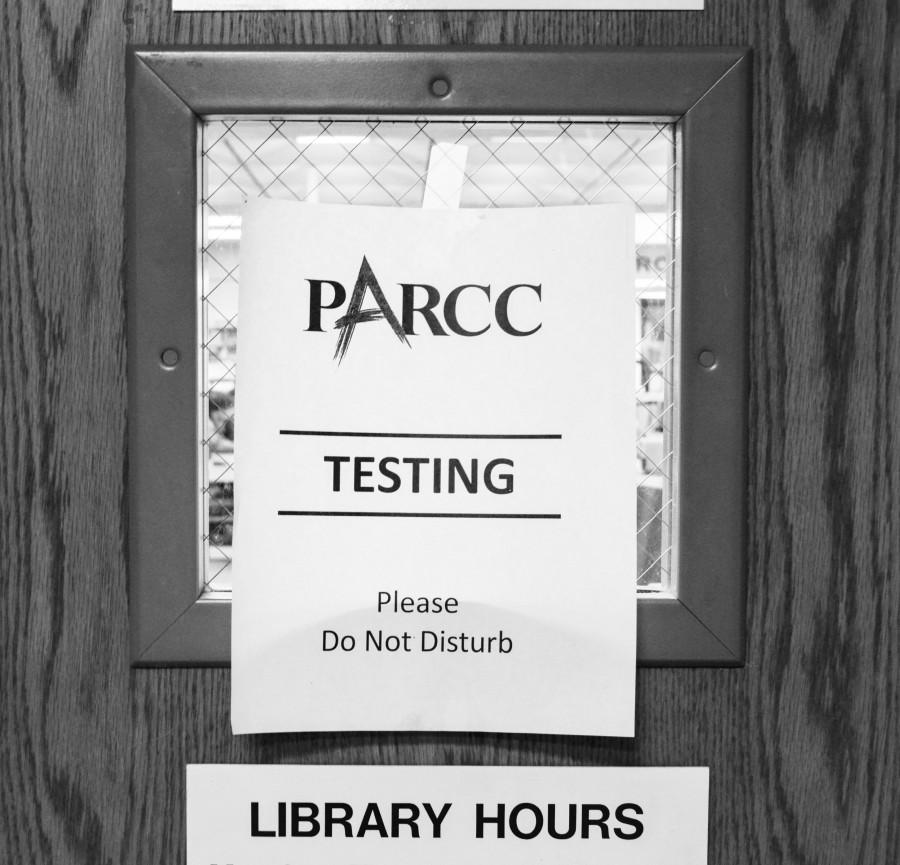By the end of this semester, every freshman at DGN will complete the Partnership for Assessment of Readiness for College and Careers (PARCC) Test. According to PARCC’s website, the test, which has been implemented in 11 states nationwide, is an assessment of a school’s compliance with Common Core standards. Across the country it was met with mixed reactions from parents, students and educators alike.
English department chair Christopher Bronke is among those who see a lot of potential in the new test.
“The PARCC is a good test, one of the best we’ve seen in a while. It’s all about critical thinking so it really can’t be turned into a game like the ACT,” Bronke said. “It’s test prep proof if you will. You see people paying tons of money for classes and boosting their ACT scores, but you can’t really do that with PARCC which I think is a good thing.”
Freshman Claire Marino, who took the English portion of the test, explained the layout. “They give you two or three passages, after that there were some comprehension questions, then finally a short essay with a prompt that asked you to compare the readings,” Marino said.
Bronke is not without concerns for the PARCC moving forward.
“It’s still flawed in the sense that it just takes too much time. I don’t see how schools can continue to give up eight to ten days a year for a single test.”
PARCC testing is broken up into two categories: Performance Based Assessment (PBA) and End of Year Assessment (EOY). Testing takes place over two weeks in March for English and Math PBA, one week in April for English EOY, and one week in May for Math EOY. Each test is broken into segments that take two hours to complete. Students who have begun taking the test, such as freshman Spencer Ukrin, have also criticized its length.
“I’d rather get it over with instead of spacing it out over such a long time,” Ukrin said. “It’s complicated to have different schedules.”
Opponents of replacing the PSAE with the PARCC are also worried that it is not as capable of predicting college success and will therefore not be widely used by universities. That was in the front of senior Jake Graham’s mind as he took the PARCC pilot test last spring.
“It felt a lot more like an English final than a standardized test. If it’s something that is supposed to test our skills for the future, I think it’s looking for the wrong abilities,” Graham said.
However, in Associate Principal Janice Schwarze’s opinion, the PARCC will be able to offer something to colleges in the future.
“Admissions officers that I’ve spoken to see a lot of potential in the test, but right now they are still in the process of gathering baseline data in order to find out what exactly a good score is,” Schwarze said. “If everything goes well I think we’re three or four years away from colleges looking at it as admissions criteria.”
As far as DGN is concerned, the PARCC is replacing the PSAE of years past, which included the Works Keys and ACT tests. As part of PARCC’s mission statement, the test gives a more in depth analysis of student growth which may be appealing to many educators.
“As teachers, we want a test that can help improve instruction by telling us what our students’ gaps are and how we can improve,” Schwarze said.
However, as a result of this switch, schools are no longer required to offer the traditional ACT. Going forward, students may have no free way to take the test that is most commonly asked for by colleges.
“As long as the ACT is being used as the primary college admissions test, I believe districts should try as hard as they can to fund one test per student,” Bronke said.
Schwarze echoed the same message, but also added that there are more factors in play than just what a test can measure. Much of the decision comes down to politics between universities, testing companies, and the state legislature.
“ACT and PARCC are both big businesses and both want to be looked to as the state’s measuring stick. It all really comes down to what our politicians in Springfield decide to go with,” Schwarze said. “There’s a lot more at stake than most people realize.”
Jack Martin | Staff Writer
[email protected]


